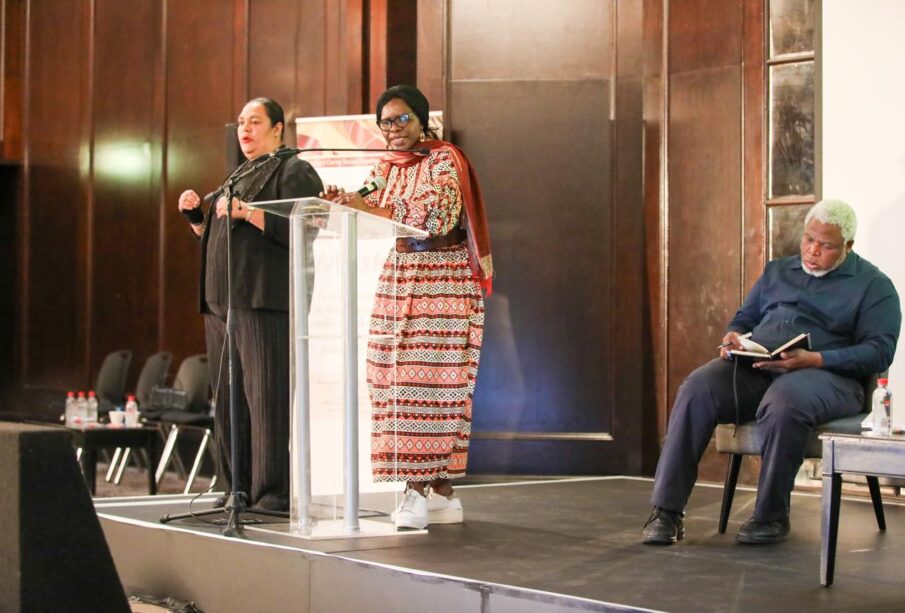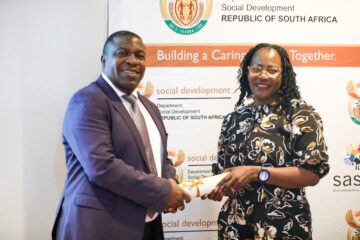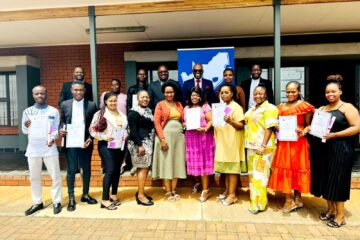TURNING GRANT BENEFICIARIES INTO THRIVING ENTREPRENEURS

Cuma Pantshwa
- Entrepreneurship has emerged as a crucial strategy for creating sustainable livelihoods and alleviating poverty globally, with the World Bank reporting that it accounts for 60% of total employment in developing countries.
- Discussions involving stakeholders such as the NYDA, Banking Association of South Africa (BASA), and the Departments of Small Business Development and Social Development highlighted entrepreneurship as a promising avenue for addressing the multifaceted challenges of poverty.
- The inspiring story of Ms. Welile Gumede, who transformed a child support grant into a thriving agricultural business, sparked a panel discussion on whether entrepreneurship is innate or learned and how to create an ecosystem that supports emerging entrepreneurs.
Entrepreneurship has emerged as a vital strategy for creating sustainable livelihoods and alleviating poverty worldwide. According to the World Bank, entrepreneurship accounts for 60% of total employment in developing countries. In recent discussions on creating sustainable livelihoods, various stakeholders, including the NYDA, the Banking Association of South Africa (BASA), the Department of Small Business Development, and the Department of Social Development, highlighted entrepreneurship as a promising avenue to address the complex challenges of poverty.
Ms. Welile Gumede, an unemployed single mother, used her daughter’s child support grant to establish her thriving business, Azowel Farming Projects, addressing critical issues of unemployment and food insecurity in her community. In her presentation, she recounted how she transformed the R350 grant to refurbish a dilapidated farm with hydroponic tunnels and began vegetable production. Ms. Gumede shared her journey of overcoming numerous challenges along the way, restoring underutilised agricultural spaces and turning them into productive, sustainable farmland, now generating over R2,000,000 in turnover.
Her inspiring story sparked a lively panel discussion among stakeholders about entrepreneurship—whether it can be taught and how to create an ecosystem of entrepreneurs. In his introductory remarks, Advocate Samuel Maifadi, Director of Special Projects and Innovation at the Department of Social Development, posed several questions: What makes Welile’s story compelling? Where does it begin? What sets her apart? Is entrepreneurship an innate quality, or can it be learned?
While the debate over whether entrepreneurship is innate or acquired was not the main focus, it prompted presentations centred on creating opportunities for sustainable solutions to poverty eradication and empowerment.
Ms. Nomvula Makgotho, Chief Director at the Department of Small Business Development, shared initiatives that have supported South Africans on the ground. She noted that one major shift towards poverty reduction is leveraging communities’ knowledge of their needs and appropriate interventions, citing businesses funded and empowered in townships across the country. “The informal economy is critical in addressing the key sustainable developmental goals of the Government. We are committed to supporting the informal economy sector through the Informal and Micro Enterprise Development Programme (IMEDP),” she stated, encouraging delegates to train individuals and help informal, micro, and small enterprises grow their businesses, fostering resilient entrepreneurs like Ms. Gumede.
She also emphasised the Department’s commitment to supporting women entrepreneurs in accessing opportunities in both private sector markets and public sector procurement. Mircalo Malan, Provincial Head of the WC at the NYDA, echoed the importance of collaboration: “To achieve intergovernmental collaboration, all parties must share information that can benefit our youth, along with the complex policies from various government departments that may hinder young individuals’ access to opportunities. By doing this, we can establish an ecosystem where beneficiaries and youth can seamlessly access opportunities that improve their material conditions across the country.”
Delegates unanimously acknowledged the crucial role entrepreneurs play in creating job opportunities for others, thereby breaking the cycle of poverty. The Department of Social Development (DSD) and participants in the discussions reaffirmed that by working together to support entrepreneurs through access to finance, skills development, and favourable regulatory frameworks, they can harness the power of entrepreneurship to build a prosperous and equitable world and address the complex issue of poverty.














